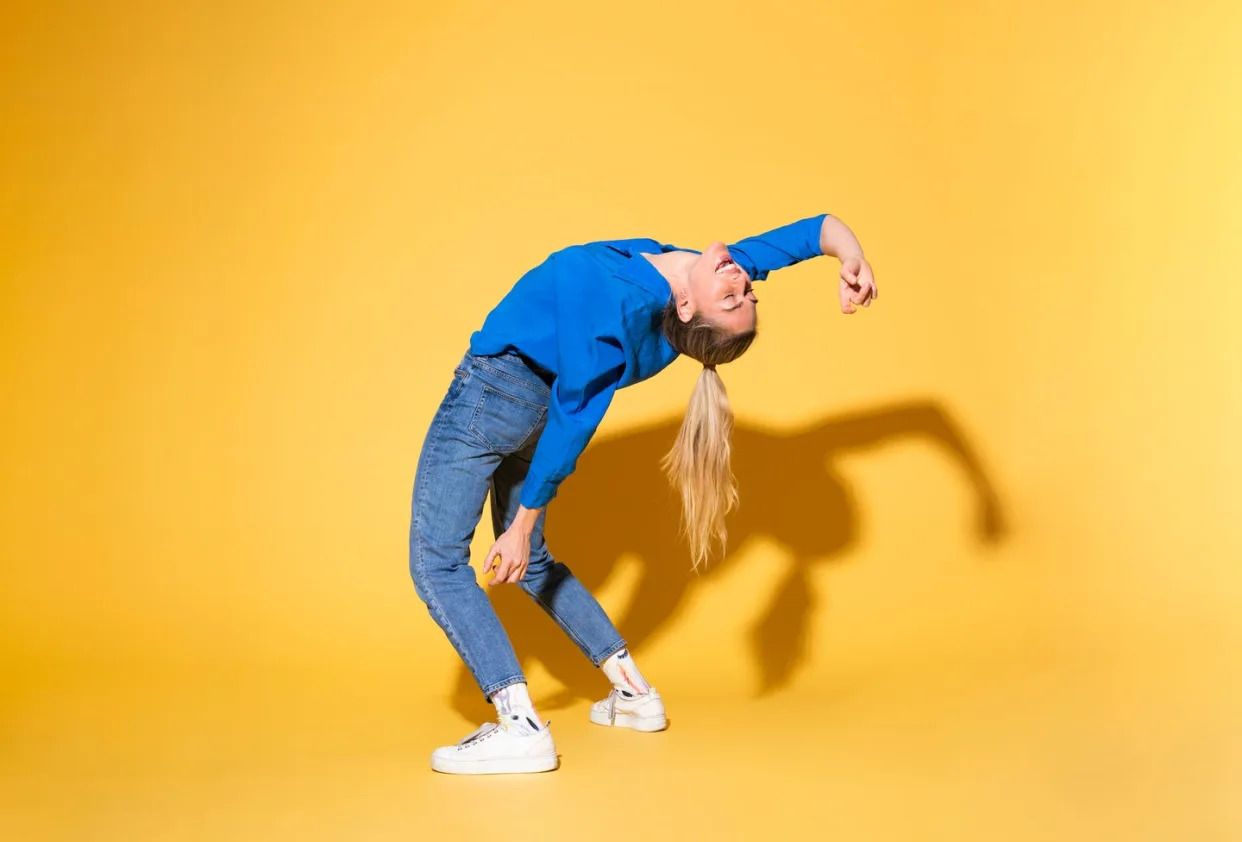Can You Do a Backbend? Your Answer Could Predict How Long You’ll Live, Study Says

At this point in life, you’re probably well aware that flexibility is an important part of your overall fitness. Not only does it keep you feeling your physical best, it can help to lower the risk of injury.
But when you’re pressed for time during a workout, it’s easy to let stretching slide. Now, here’s new motivation for keeping up a stretching regimen: It could help you live longer.
That’s the major takeaway from a new study published in the Scandinavian Journal of Medicine & Science in Sports, which found a link between how flexible people were and how long they lived.
But why might there be a link between flexibility and longevity? Here’s the deal.
Meet the experts: Ryan Glatt, CPT, personal trainer, senior brain health coach and director of the FitBrain Program at Pacific Neuroscience Institute in Santa Monica, California. Albert Matheny, RD, CSCS, a co-founder of SoHo Strength Lab.
What did the study find?
For the study, researchers analyzed data from more than 3,100 people over 28 years, looking at how flexible they were and how long they lived.
The researchers specifically looked at data from clinical exams that gave patients a “Flexitest” that checked how flexible they were over were in 20 body joint movements, including those in the ankle, shoulder, knee, wrist, hip, and elbow. From there, people were given a “Flexindex” score from zero to 80 based on how flexible they were.
Overall, the researchers found that people with higher flexibility levels had higher survival rates for deaths from natural or non-COVID causes. In general, women had higher scores than men. But women with lower flexibility scores had a 4.78 times higher risk of dying compared to their more flexible counterparts, while men with lower flexibility scores only had a 1.87 times higher risk.
Does being flexible make you live longer?
It’s stretch (get it!) to say that being flexible alone will make you live longer. Instead, the researchers found that people who were more flexible lived longer—but they didn’t find that the flexibility was the exact reason.
It could be that people who are more flexible are more physically active or more health-conscious—and both of those factors could raise the odds of living a longer life. Still, there was a definite link.
Because of that, the researchers concluded that more research is needed to see if becoming more flexible could help extend a person’s life.
Ryan Glatt, CPT, a personal trainer, senior brain health coach and director of the FitBrain Program at Pacific Neuroscience Institute in Santa Monica, California, agrees. “While it’s plausible that better flexibility might reflect overall better health and contribute to longer life, the evidence isn’t conclusive,” he says.
Should this affect my workouts?
It’s always good to try to work on your flexibility, regardless of whether it will help you to live longer, Glatt says. “Incorporating flexibility exercises into routines, especially for older adults, seems reasonable, since flexibility decreases with age,” he says. “But the true impact on survival is still uncertain.”
Given that being flexible can help lower your risk of injury, it’s a good idea to make time for it, says Albert Matheny, RD, CSCS, a co-founder of SoHo Strength Lab. “There is some debate around stretching but, generally, stretching does provide your body some kind of low level of movement and ranges of motion,” he says. “It often helps with recovery, healing, and joint function.”
Flexibility as a whole allows you to have a better range of motion so that you don’t have to compromise on movements that could hurt other joints, Matheny says. “Flexibility allows the whole chain to adapt as you move,” he says.
Luckily, flexibility is something you can work on. If you feel like your flexibility is lacking, incorporating exercises like yoga to your workout routine can help.
But, if you’re really struggling with flexibility, it doesn’t hurt to check in with your doctor. They may suggest meeting with a physical therapist for more targeted exercises to help you get more range.


